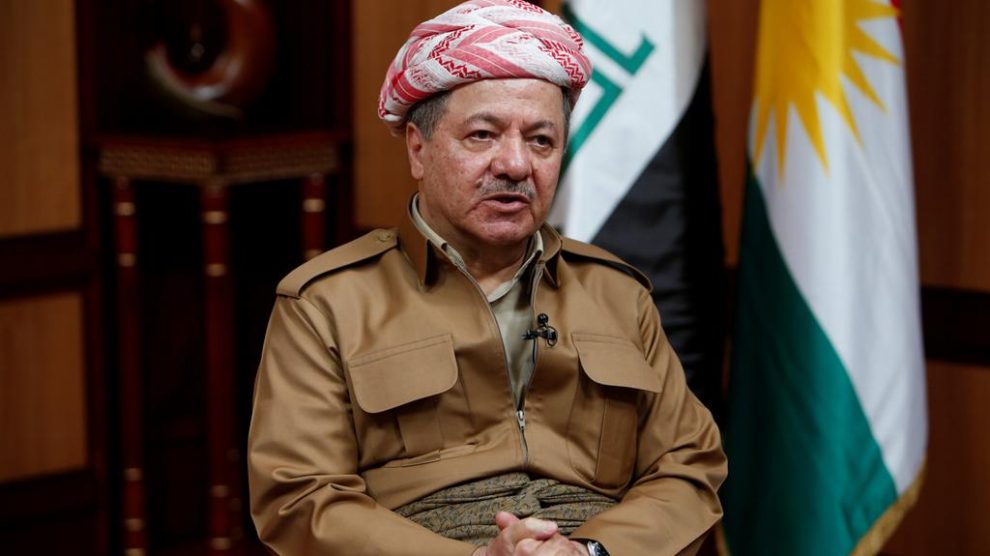The head of the Iraqi Kurdish Regional Government (KRG), Mesud Barzani, said during an interview with BBC that every Kurd would fight for the city of Kirkuk in case of independence. KRG plans to hold an independence referendum on September 25. There are many strings attached to the road that goes to independence. Fighting is certainly one of them. However, there are far more important other aspects for a state to survive following a unilateral secession. To be able to understand the survival chance of Iraqi Kurds in a region that has turned into a fireball, those aspects need to be understood first.
Any territory seeking to secede in the contemporary international system faces enormous structural opposition. It has been particularly the case especially since 1945. Indeed, Bangladesh is still widely regarded as the only truly successful case of unilateral secession since 1945. And it has only been made possible by the consent of the parent state, Pakistan. So when we talk about the independence of Iraqi Kurds, we are looking at only one successful secession case among tens of examples in the past century.
Also, there is one semi-successful state: Kosovo. The tiny Balkan country unilaterally declared independence from Serbia in 2008. The United States and the European Union threw full support to Kosovo’s independence. But even with the absolute backing of the EU and the US, Kosovo has yet to fully integrate into the international institutions. As of 2016, Kosovo has been recognized only a little more than the half of the countries of the United Nations.
And there are also unsuccessful unilateral independence cases. One of them especially stands out for the Turkish public. After Turkey militarily intervened in the coup attempt which aimed to annex Cyprus to Greece, Turkish Republic of Northern Cyprus (TRNC) was established and declared independence in 1983. The unilateral secession of TRNC was not recognized by any country other than Turkey. Even closest traditional allies of Turkey such as Azerbaijan has not recognized TRNC. We could see a similar scenario in the breakaway regions of the Caucasus. After a brief war between Georgia and Russia, South Ossetia and Abkhazia seceded from Georgia with the support of Russia. But Despite strong pressure from Moscow, only a handful countries have recognized them. Even Russia’s closest traditional allies, such as Belarus and the Central Asian Republics, have not been persuaded to recognize them.
So the biggest impediment for unilateral secession is to get recognized in today’s World order. The international community has a very strong aversion to acts of secession, wishing to protect their own sovereignty and territorial integrity.
But one could still argue that Barzani’s Kurdish region could go on with the referendum and declare independence despite knowing that it wont be recognized by any states. Not having the support of mainly the United States, the KRG region would be an example of Turkish Republic of Northern Cyprus rather than Kosovo. But here, another important aspect of unilateral secession kicks in: a parent state who will provide a life line. This parent state, in other cases in the World, is often made up of the same ethnic background and shares a border with the de facto state. The KRG region, however, lacks both them. There is no ethnic Kurdish state nor any state for that matter who supports KRG’s move and would provide life line of transport of goods. Turkey play that role for TRNC as Russia does the same role for South Ossetia and Abkhazia. The Sunni Iraqi Kurds are surrounded by Shia whose influence in the region has multiplied ever since the civil war of Syria. The only country that could play the parent state role fort he Kurds is Turkey. And Ankara sees the very move of Barzani a threat to its own territorial integrity because of its own Kurdish-covered terror problem.
In the end, the leader of Iraqi Kurds must be well aware of the facts that have been stipulated in this article. And it seems that Barzani is determined to move on with the referendum despite lacking any of the requirements for a successful break up from a sovereign state. Then the question up in the air here is what is the reason of the move if the result is almost certain in his region’s disfavor? The answer to that question should be seeked by the experts to make an healthy analysis of the developments in the region.







Add Comment